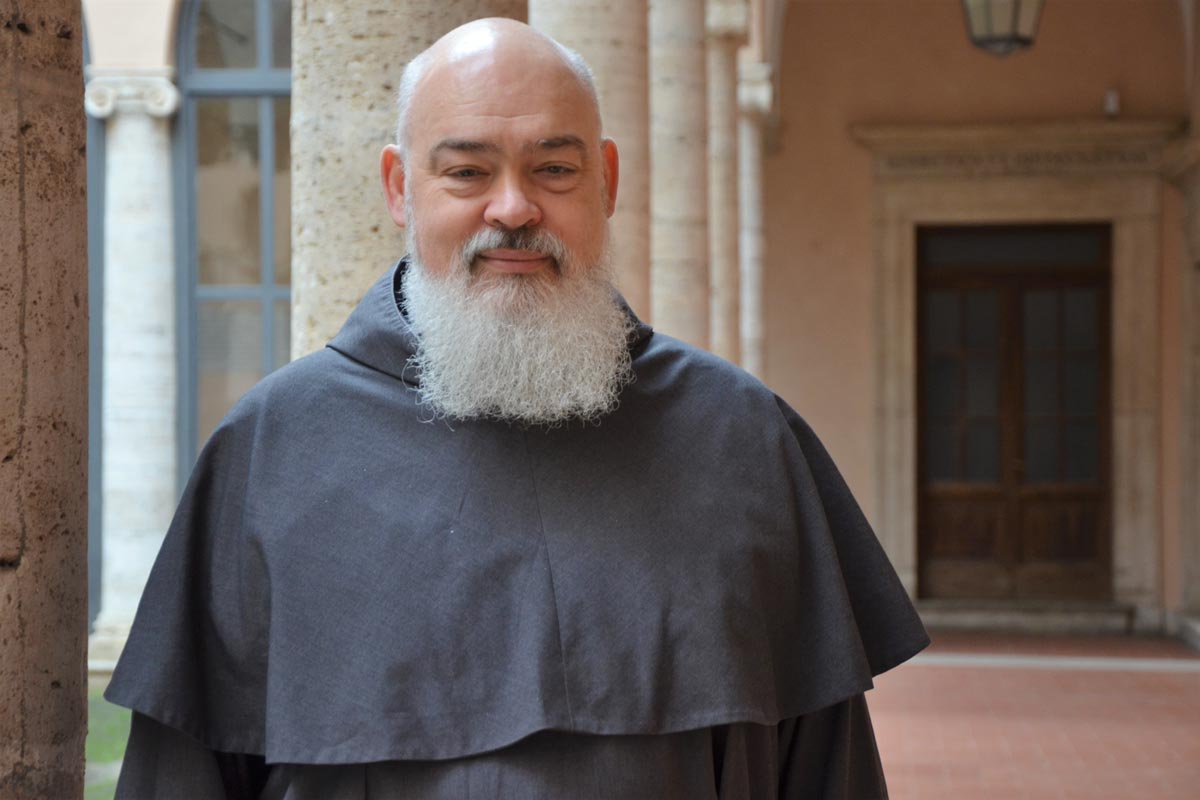– Aurelio Porfiri
Not long ago, I came across a book in French by Belgian Professor André Wénin. The book is called Psaumes censurés : Quand la prière a des accents violents (2017 Editions du Cerf, now available also in Italian) and deal with the problem of the so called “imprecatory psalms,” those psalms that contain very strong (or violent) language and that in recent times were removed from the liturgy. Professor Wénin has a long list of publications, he is professor of biblical exegesis at the theological faculty of the Catholic University of Louvain (Belgium) and visiting professor at the Gregorian University (Rome).
Professor, how was your interest in the so-called imprecatory psalms born?
First of all, I was confronted with questions by students in theology or other readers of the Bible, scandalized that there are such violent texts in the Psalter. They cannot understand why such violent prayers have been integrated into the Old Testament. I wrote a couple of articles to show what meaning comes from a careful reading that, without preconceptions, tries to highlight what is the vision of God, of the world and of evil of these texts. Later, a publisher asked me to write a book to develop my interpretation and expand it to other psalms and parts of the Psalter that are excluded from the prayer of the hours. It was an opportunity for me to deepen my study.
Did not you think it would cause controversy?
Actually, I do not worry about this kind of consideration when I write a book. Here, the fact that the teaching Authority of the Roman Catholic Church has “purified” the Psalter of the Psalms or pieces that they do not like could be discussed. But this is the truth, and I do not see why I should conceal the fact that sometimes church leaders take possession of the book in which they claim to recognize the word of God and treat it as if they were owners and masters. It is perhaps the symptom that they use the word of God thinking that they are serving it.
What is the exegetical tradition of these psalms?
The modern exegetes have never circumvented these psalms to avoid having to comment on them, even if some, studying them, have given different explanations that disqualify them. For example, they would be the sign that, in the Old Testament, faith is not (yet) pure, or even proof that Christ was to come to overcome this very imperfect revelation. But in recent decades, we try to understand what theological and perhaps spiritual richness is hidden behind these cries whose accents seem so violent.
The Church seems to be afraid, recently, that they may upset the faithful. Is it a fear founded?
I would not say the Church, but some responsible person(s). The problem is quite recent. In fact, in the Roman church, as long as the psalms were read in Latin – a liturgical language – no one was dimmed by finding these psalms or having to read them. The problem arose at the time of the liturgical reform induced by the Second Vatican Council, when it was decided to celebrate the liturgy in the vernacular language. The council fathers and the people charged with preparing the liturgy reform agreed that the whole Psalter was to be preserved, but Paul VI decided to subtract three psalms and pieces of other psalms because they could create psychological problems – he probably thought that the faithful reading (or hearing) these texts in their own language would have been scandalized to find such prayers. That fear was not unfounded (imagine a believer entering the church of a monastery and hearing the nuns singing “God! Break their teeth into their mouths, the fangs of these lions, break them, o Lord”). The fear was well founded, but the way to deal with it seems to me wrong: instead of explaining things or of forming Christians to an intelligent reading of such texts, it was preferred to delete them, to hide them. It is perhaps a Catholic tendency to try to avoid difficult problems instead of facing them, even if it is not easy to do so.
Don’t you think that in a time when there is so much emphasis on mercy these psalms may be out of place?
The word of God is never out of place. To insist so much on mercy, one probably tries to correct the image of a Church that judges, condemns, punishes, to go to the evangelical side of understanding, mercy and forgiveness. But to insist too much on this aspect, we forget that when evil flares up and makes so many victims, mercy can be the enemy of justice. Now, one who has been the victim of the injustice or the violence of others demands that justice be done, and this is precisely the heart of the so-called imprecatory psalms: asking God to do justice by punishing the perpetrators of evil that crush their victims. Being merciful towards these wicked ones means increasing the suffering of their victims. The same pontiff who insists so much on mercy does not recommend it at all when it comes to condemning pedophile priests. One of the problems of the pastors of the Roman Catholic Church is that they prefer simplistic ideas (catechism, instead of the Bible). Now life is complex, and real human situations require the sense of this complexity. Proposing simplistic ideas is to increase the misfortune of the world. The Bible does exactly the opposite: it reflects the complexity of life and reality and proposes ways of humanization that respect it, provided one does not want to simplify it. By removing psalms or pieces that you do not like, is not it trying to make the Bible say the simple things we aspire to?.
How we must interpret Psalm 58:6-11, for instance?
The verses cited constitute the second part of the psalm. It is the part where the expression becomes violent. But to understand why this appeal to God is so inflamed, we must read the first part of the text in which the psalmist evokes the dramatic situation in which he finds himself. The powerful judges, instead of making justice in favor of the innocent, pronounce unjust sentences that increase the oppression of those who are already victims of violence. It is a situation that cries to the heavens for vengeance. Exactly what the psalmist does in that psalm. But he asks God himself – the just judge – to make revenge, that is, restore the justice trampled by those who, on earth, should make her reign. In this sense, the violence of prayer is only a reflection of the violence suffered by the person who prays, shouting at the same time his suffering and his faith in the God of justice.
What is a correct reading of Psalm 83:14-18)?
Again, to interpret these difficult verses, it is necessary to put them back in context. Here, the context is that of a coalition of enemy nations of Israel that are lined up with the intention of destroying the people of God. They are holding a counter-alliance to suppress the strong alliance that unites Israel to its Lord. Faced with this danger of life for the chosen people, the psalmist asks for God’s intervention to make the project of the enemies of Israel fail, because they do not know that, attacking this people, they also attack their God, and therefore prepare their ruin. As in Psalm 58, the psalmist does not ask God to arm his hand to allow him to kill his enemies. He asks God to intervene, so that, upset by his power, they start to “seek the Lord,” that is they convert and stop wanting to attack Israel, or, if this conversion is not possible, asks God to destroy their power. Everyone will see, then, who is this God, the highest.
Psalm 109 also uses similar tones. Can you comment briefly?
This psalm is often read without paying attention to its precise formulation. It is thought then that the curses are addressed to the adversaries of the psalmist who is a believer victim of the injustice of others. But this reading is wrong. A more accurate reading shows that the psalmist, far from cursing his adversaries, cites instead the curses of the adversaries who are targeting him to wish him the worst misfortunes. He quotes them so that God becomes aware of the evil he suffers and comes to his aid.
Is there a consistency in the Psalter?
Sure. But for this, it is necessary to read the Psalter as a book, paying attention to the bonds between the different prayers and to the “path” that is sketched through their sequence. We should first of all lose this habit that consists in consuming the Bible – including the Gospels – only in small pieces as the liturgy or catechesis proposes, and read not only the Psalter, but also the other biblical books as coherent books. A demanding reading, perhaps difficult, but that is able to bring many fruits of human and spiritual growth.


 Follow
Follow


